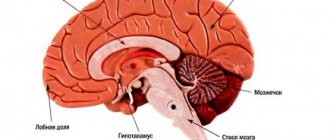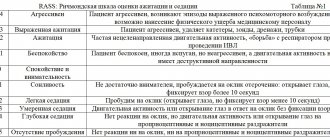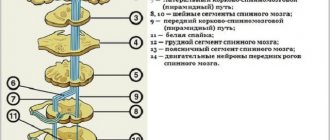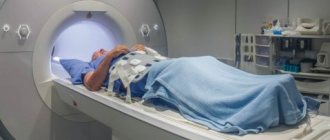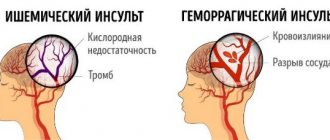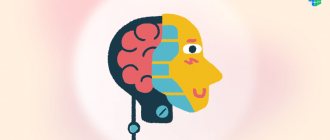After a person has at least once been in a state of severe alcoholic intoxication, due to the consumption of large quantities of alcoholic beverages, he begins to be interested in the question: will the organs and their functions be restored? It is especially important whether brain cells are able to recover after quitting alcohol. The same question is asked by a person undergoing rehabilitation after treatment for chronic alcohol addiction.
There are times, especially on holidays, when a person, without meaning to, drinks a very large dose of alcohol in a short time. It is clear that you should not expect pleasant sensations after this. People who suffer the most are those who are not used to drinking alcoholic beverages, or who do so rarely and in small portions. They will have headaches from drinking alcohol for a long time.
Research shows that only five percent of ethanol leaves the body naturally, that is, through sweating and urination.
The rest of it is broken down in the body, and it will take some time to remove all the breakdown products of ethanol from the body. It also depends on the physical condition of the person, what age he is, and his gender. And of course, what drinks did he drink and in what quantities.
Destructive effects of ethanol on brain cells
There is no doubt that ethanol destroys brain cells. This is evidenced by gait disturbances, inhibition of reactions, and memory disorders. As soon as ethanol stops entering the body, functions are gradually restored.
Everyone knows that alcohol is harmful to health. It all starts with a violation of consciousness, and can lead to the fact that a person becomes disabled forever. There are some factors that help determine how much damage is done to brain cells and what effect ethanol has on them.
These include:
- how often a person drinks alcohol and in what quantities;
- at what age did he start drinking alcohol, and when did he become dependent on alcohol?
- what gender is the person, how old is he, is he educated, is there a genetic predisposition to alcohol addiction, and have there been any cases of chronic alcoholism among relatives;
- what physical condition the person is in;
- whether fetal alcohol syndrome has been observed in humans.
Disorder of consciousness for a short time, which occurs after drinking alcohol, occurs much more often than doctors previously claimed. Such a result can be defined as a possible consequence of alcohol intoxication, which does not depend on whether the person has symptoms of chronic alcohol dependence or how old he is.
Scientists conducted an experiment trying to identify the negative effects of ethanol on brain cells associated with short-term consciousness disorders. More than seven hundred students participated in the experiment. They all answered the same question: has it ever happened to you when, waking up in the morning, after a night of alcoholic outpourings, you were unable to remember what you did in the evening and where you were?
More than half of the youth already had experience of drinking alcoholic beverages, and answered in the affirmative: yes, after drinking a large amount of alcohol they experienced memory disorders. Forty percent of them said this had happened in the past year, and nine percent of respondents had consumed alcoholic beverages in the past two weeks and experienced brain fog.
Is there insurance against memory impairment? How can I reduce the risk?
It is necessary to consult a general practitioner as soon as you feel unwell. If you have not done so, make an appointment after recovery, even if you feel well. But it is especially important to consult a doctor if you have the following symptoms after suffering from coronavirus: depression, apathy, sweating, weakness, fatigue, shortness of breath, tachycardia, frequent urination or urinary retention, heaviness in the right side.
Comment by the chief physician of the Family Doctor clinic, A. A. Azarov:
“At the moment, most of the pathological manifestations of the new coronavirus infection, not to mention the long-term consequences, are under study. If memory impairment after suffering from the new coronavirus infection Covid-19 worsens the quality of life, we recommend contacting specialized specialists for a face-to-face consultation: a neurologist, a psychiatrist to assess the state of memory, select adequate therapy if necessary, as well as dynamic monitoring.”
The effect of alcohol on the female brain?
Complications caused by drinking alcoholic beverages are more serious in the fairer sex than in men.
It has been experimentally proven that ethanol behaves much more aggressively towards the cells of a woman’s body than towards the cells of a man. Organs and their functions are more susceptible to the negative effects of alcohol. The destruction of the liver, damage to the heart muscle and cells of the nervous system occurs faster.
Having carried out a comparative analysis of the results of studies of the human brain using MCT, scientists have established the fact that the negative effects of ethanol manifest themselves in the fact that the brain decreases in size.
The degree of such a decrease is the main indicator that organic changes are present in the brain cells. And the longer the experience of drinking alcohol, the higher these indicators.
In addition, the results of the experiments showed that both women and men who suffer from alcohol addiction face certain problems when they have to learn something or remember any information. All this occurs due to frequent consumption of alcoholic beverages.
Note that the male representatives who participated in such an experiment had twice as much experience of regular consumption of large amounts of alcohol than the fairer sex.
It turns out that the negative effects of ethanol on both the male and female brains manifest themselves in the same ways. But it is necessary to take into account that women took exactly half as much alcohol. From all this we conclude that ethanol has a stronger effect on the female brain.
In contrast, two articles were recently published in an American publication discussing the role of gender in the effects of ethyl alcohol on the body.
The authors came to the opposite conclusion, that is, according to them, ethanol has the same effect on everyone without exception. This means that experiments of this kind need to be continued in order to find out the specific effects of ethyl alcohol on a woman’s brain cells.
How to reduce the risk of memory impairment due to new coronavirus infection
After suffering a coronavirus infection, you need to undergo a full examination. Treatment is based on the detected pathology and differs significantly even for people who had the same illness at the same time.
Comment by
E. E. Razina, pediatric neurologist, epileptologist, functional diagnostics doctor, leading specialist at the Family Doctor clinic :
“Every third patient who has had Covid-19 develops neurological symptoms: dizziness, headache, cognitive disorders. Therefore, first of all, drug rehabilitation treatment is necessary, aimed at restoring normal brain function: vascular and nootropic therapy.
In parallel with nootropic therapy, the following are recommended:
- good sleep
- moderate physical activity
- eliminating stress
- taking vitamin-mineral complexes with a high content of B vitamins, magnesium, zinc
- active communication.
Try to call up with relatives and friends more often, and participate in entertainment events. Start learning a foreign language, read books, learn poetry, draw up walking routes in advance, keep them in your head.”
Don’t forget about proper nutrition and drinking enough liquid – up to 2-3 liters per day. It is necessary to harmonize the work and rest regime, to avoid physical and mental stress.
Thiamine deficiency and Korsakoff-Wernicke disease
If a person systematically drinks alcohol, without control over the amount he drinks, and this lasts for quite a long time, then he has every chance of developing brain dysfunction or damage to his cells. Moreover, this can be caused by the consumption of large amounts of alcohol, or there may be serious disturbances in the liver due to chronic alcohol dependence.
For example, most people suffering from chronic alcohol addiction have a lack of thiamine in their bodies, or as it is also called vitamin B1. It may be lacking due to poor nutrition, metabolic disorders in the body and, of course, due to the abuse of alcoholic beverages. It plays an indispensable role in the metabolism of carbohydrates, lipids, and proteins. It supports the normal functioning of the cardiovascular system, digestive tract, and nervous structures.
Most people suffering from chronic alcohol addiction are deficient in vitamin B1. And this can lead to such a serious illness as Korsakoff-Wernicke syndrome, or more precisely, Wernicke syndrome and Korsakoff syndrome.
Wernicke's disease is characterized by paralysis of the eye muscles, disturbance of consciousness and impaired coordination of movements. Sometimes a patient with a similar syndrome cannot independently find the door of the room to leave, he cannot move without someone else's help. If at least one of the signs of the disease appears, you need to urgently seek medical help.
Most people suffering from alcohol dependence, along with Wernicke's syndrome, experience Korsakoff's syndrome, which is also called alcohol paralysis. With this disease, memory impairment is observed, when he forgets everything that happened to him before the disease, but can describe in great detail the events that took place several years before.
In addition, he remembers well everything that happens to him after his illness. The patient begins to invent non-existent events, or talk about those that really happened, but at the same time greatly distorts the facts. All this is accompanied by disorientation. The patient ceases to navigate the world around him and himself. Sometimes, even after seeing his reflection in the mirror, the patient does not realize that it is him.
Call us now:
+7 (812) 454-00-50
Prices for Ultramed clinic services
Kinds
The consequences of a stroke are several types of amnesia. Based on what type of injury the attending physician diagnoses, individual treatment and rehabilitation measures are prescribed.
Types of amnesia:
- Damage to verbal memory;
- Visual glitches;
- Motor skills disorders;
- Damage to emotional-figurative memory.
- Vascular dementia.
Verbal
Verbal memory is the ability to remember, retain and reproduce verbal information.
If the part of the brain responsible for storing information received verbally is damaged, then the patient cannot remember the names of relatives and friends, forgets the names of objects, and loses vocabulary. Communication with others becomes extremely difficult, and the victim has difficulty remembering new information.
Visual memory impairment
A person’s ability to fix, store and use various information that is received in the form of a visual image is called visual memory.
After a stroke, a patient whose area that stores visual information is damaged may not recognize everything around him: his home, family, friends, objects, etc.
Loss of motor skills
Motor skills are a person’s ability to confidently perform complex movements. Patients forget the simplest actions: how to use cutlery, walk, squat, write, grasp objects with their hands, go up and down stairs, etc.
Loss of emotional-figurative memory
Emotional-visual memory is responsible for the ability to record and store feelings and emotions that are associated with any object, person, event or phenomenon. If it is violated, the patient ceases to recognize the images and emotions that are associated with them. He does not remember the taste of dishes that he previously considered favorite, changes his musical tastes, and does not recognize the voices of loved ones and acquaintances.
Vascular dementia
The most complex type of brain disorder, which is difficult to recover, is vascular dementia. The adequacy of a person’s perception of what surrounds him disappears almost completely over time.
A person does not recognize objects that he used to constantly use, does not remember their names and purposes. When communicating with other people, the patient cannot remember their names and where he knows them from. This applies not only to distant acquaintances or strangers, but also to close relatives, friends and colleagues.
However, if you choose the right intensive rehabilitation measures and constantly monitor the patient’s condition, you can slow down the process of dementia and adapt the person to real life.
Is it possible to restore brain cells?
It was believed that a person is born with a specific number of brain cells, and if they are somehow damaged, then they cannot be restored. Scientists believed that neurons under the influence of ethyl alcohol were destroyed and no longer function. in order to restore their activity it is necessary to strengthen the remaining nerve cells, since there is no possibility of adding new ones. But in the second half of the last century, scientists discovered that the formation of new neurons is possible. This process is called neurogenesis. After this discovery, scientists developed a new approach to the treatment of disorders of brain cells.
How memory works
Commentary by the chief physician of the Family Doctor clinic, Alexander Alexandrovich Azarov:
“Memory is a complex physiological process, which is based on biochemical reactions, permanent and temporary nerve connections that arise between neurons under the influence of external stimuli. At the same time, the reliability of memorization depends on the ability to concentrate, the frequency of repetitions, as well as on the individual characteristics of the person.”
Types of memory
| Classification | View | Mechanism | Examples |
| By duration | Short term | Immediate recall after perception | Understanding the meaning of a phrase when reading, copying. |
| Long-term | Long-term retention after repeated repetition. | Performing household and professional tasks. | |
| By the nature of memorization | free | Targeted memorization. | Studies. |
| Involuntary | The person makes no effort to remember. | Life experience. | |
| By nature of activity | Figurative | Memorizing images of music, aromas, views. | Pictures of nature, music, people's faces. Developed by artists and musicians. |
| Semantic | Memorizing words: read or heard. | Memorizing poems and stories. Developed by actors, poets, writers. | |
| Motor | Memorizing movements. | Self-care skills, daily movements. Developed among dancers and athletes. | |
| Emotional | Remembering experienced feelings. | Love, empathy, sympathy. |
Publications by our doctors on the topic “How to overcome post-Covid syndrome”
- Lung recovery after coronavirus
- Restoring the sense of smell after coronavirus
- Overcoming mental disorders during post-Covid syndrome
- We are experiencing COVID. How the coronavirus pandemic affects mental functioning
- Post-Covid screening - examination after a new coronavirus infection
- How to return digestion to normal after coronavirus?
- Loss of smell due to COVID-19 - advice from an otolaryngologist
- Recommendations from a cardiologist after suffering from COVID-19
- Coronavirus turned out to be “vindictive” - what is important to know
- Post-Covid syndrome: program for diagnosis and regression of post-Covid symptoms. How to Manage Long-Term Long COVID Symptoms
Cases from practice
- Patient N, 35 years old. After suffering from Covid-19, memory deteriorated significantly, sleep deteriorated, and anxiety and irritability appeared. Drug therapy was selected, recommendations were given on compliance with the work and rest regime. After 1 month, the patient's condition improved significantly.
- Patient K, 47 years old. After suffering from a mild form of Covid-19, I noticed a sharp deterioration in memory, apathy and irritability appeared. The patient was given recommendations on sleep patterns and prescribed drug therapy. Two weeks later, he noted an improvement in his condition and continued taking medications.
If you have problems with remembering, contact a general practitioner or neurologist at the Family Doctor clinic - make an appointment by calling the single contact center +7 (495) 775 75 66, use the online appointment service or contact the reception clinics. The doctor will identify the cause of the disorder and prescribe the necessary treatment. The professional attention of our clinic specialists will help restore your memory and restore your usual quality of life.
